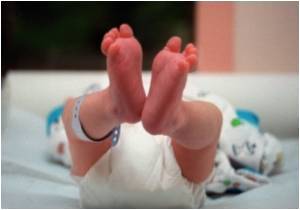Clean delivery kits combined with clean delivery practices lead to reduction in neonatal mortality, reveals study published in PLoS Medicine.

The authors say: "The use of kits may not always be accompanied by clean delivery practices, and the latter should be emphasised when promoting them."
Costs of such kits are low (0.44 USD in India, 0.40 USD in Nepal, and 0.27 USD in Bangladesh although these costs may still be prohibitive for the poorest women) and given the impact of clean delivery kits and clean delivery practices in reducing neonatal practices, the authors argue that such strategies should be widely promoted by the international community.
The authors say: "Many governments and nongovernmental organisations encourage the use of clean delivery kits, both with and without accompanying promotion programmes. Our study shows that distributing kits, even with instructions, does not guarantee that life-saving clean delivery practices will be used."
The authors add: "Further research should explore the context of kit use in order to develop and test locally appropriate promotion strategies, as well as examine the potential of kits to improve neonatal survival in the context of increasing institutional delivery rates."
Source-Eurekalert









